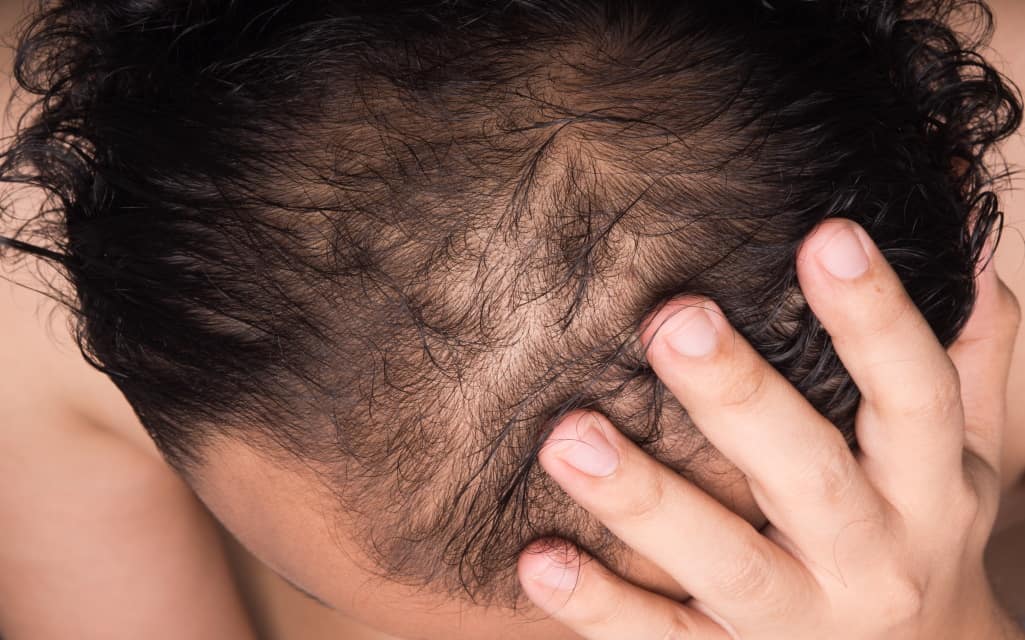Are you depressed by your depleting hairline? Well, you are not alone and around 50 million Americans are facing the same problem. No matter whether you are in your 20s, 30s or have crossed 50s, hair loss can initiate anytime, and worst of all, you can’t prevent it from happening. However, technology is a blessing, and with some advanced DHT blocking treatments or ARTAS hair transplant, you can counter baldness.
But before moving toward a treatment, identifying your type of hair fall is necessary. So, this guide is to share some knowledge about the most obvious reasons behind hair loss.
The 5 Common Causes of Hair Loss in Men
1. Genetics
Almost 95% of hair loss reported in men is due to androgenetic alopecia, says American Hair Loss Association. Studies show that genetics and hormonal changes are mainly responsible for triggering this type of hair fall. Since testosterone level is higher in men, its by-product dihydrotestosterone is also produced in an increased amount. Although DHT has certain benefits, it can lead to shirking your hair follicles if you have a history of pattern baldness.
Normally, androgenetic alopecia causes hair to fall in two different patterns. Either your hairline starts receding toward the back or the hair shedding initiates from the top and temples. Unfortunately, there is no known solution to prevent this condition. However, by using some techniques, you can make your scalp look fuller.
2. Autoimmune Disorder
Our immune system works to fight against infections and other foreign invaders. But sometimes it forgets the healthy cells and starts to assume them as bacteria. Consequently, those needed cells are attacked. And an individual may face diabetes, arthritis, anemia and many other diseases due to this condition.
Alopecia areata is one of such cases during which the white blood cells mistake the hair follicles as disease and start to target them. Hence, the follicles become smaller, and the hair starts to fall in patches. Though there is no clear understanding of why this disorder occurs, some research shares that genetics or extreme stress is the main reason behind it.
As of now, there is no reliable treatment for alopecia areata. Nevertheless, your doctor may prescribe you corticosteroids. A drug capable of suppressing the immune system which thereby halts it from attacking the hair follicles.
3. A Stressful Event
Have you been through physical trauma? Or were you hit by an emotional backlash? While recovering from it might seem like the ordeal is over, but one possible outcome you may experience after 2 to 3 months is hair fall. The scientists call it Telogen Effluvium. However, the good news is that this type of hair loss is not permanent, and you can regrow your lost hair within a span of 2 to 6 months.
Some possible ways to counter the symptoms are:
- Buy some OTC drugs like minoxidil
- Do yoga, meditation or other exercises to relieve mental stress
- Avoid excessive hair styling
- If physical surgery is the triggering factor, try to fulfill the nutritional or vitamin deficiencies
4. Nutritional Deficiency
An inadequate amount of essential nutrients and vitamins in the body can also cause hair shedding. For example, Biotin (Vitamin B7) increases the growth of follicles. Hence, a deficiency of it can bring about hair loss. Anyway, you can regrow your hair back by consuming biotin-rich food.
Similarly, Vitamin D is essential for healthy hair follicles. Insufficiency of it can cease the growth of new hair. Whereas the inadequate supply of iron may cause the hair to fall in a similar way as one observed in male-pattern baldness. Therefore, if you notice a sudden increase in hair fall, check whether you have normal nutritional levels or not.
5. Medications Intake
Damaged hair follicles are a common side-effect associated with some medications. Nonetheless, this type of hair fall is not severe and as you stop the intake of medicines, the hair starts to grow back to its initial state. Some of such drugs are:
- Medications derived from Vitamin A
- Antibiotics
- Chemotherapy treatment
- Blood pressure medications
- Antidepressants
The Way Forward
If you feel like having one of the mentioned conditions, reporting to a dermatologist should be the first step. Your doctor may recommend minoxidil and finasteride as they have shown some noticeable results in increasing hair growth. Besides, don’t worry if nothing works out for you, receiving a hair transplant is always an option to bring back your lost identity.



